REU 2025 Research Projects
REU 2025 projects will be a continuation of the 2024 projects (shown below) with some changes.
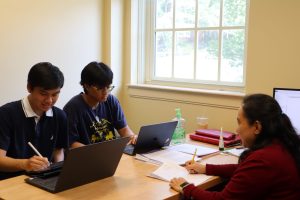
Project Title:
“Tensor Product Splines for Analyzing the Effects Of Physical Activity
On Interstitial Glucose Level”
“Prediabetes affects more than one third of US people and 70% of individuals with prediabetes eventually develop type 2 diabetes. However, prediabetes is reversible via lifestyle changes, such as dietary change and physical activity. In this project, we will analyze a dataset on wearable devices collected by Bent et al. (2021) by using a novel statistical model to investigate the impact of physical activity on glucose level, and consequently provide insights in developing personalized activity-based interventions for prediabetic patients.”

Project Title:
“Improved Confidence Intervals for Mixed-Paired and Two-Sample Designs”
We are working on a project in nonparametric and robust statistical testing with Dr. Richter. Oftentimes, studies include designs that result in a combination of paired and unpaired observations. This can be due to multiple reasons such as missing data or the inclusion of subjects that do not have suitable matches. We are taking data from these studies, modifying preexisting test statistics, and looking at how the confidence intervals that result from these modifications compare to other statistics.
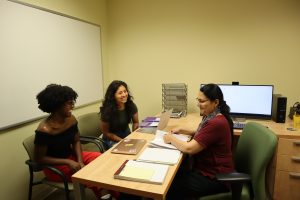
Project Title:
“Field Work Validation of a Mixture Binary RRT model that Accounts for Trust and Measurement Errors”
There have been several studies where RRT models have been used in real-life settings. Some examples can be found in “Doping and drug use among athletes (Striegel et al., 2006)”, “Ableism (Ostapczuk & Musch, 2011)”, “Antisemitism (Krumpal, 2012)” and “Homosexuality (Chen et al., 2014)”.
In this Applied project, we attempt to validate the Meche et al. (2024) binary mixture RRT model through a field survey at the UNCG campus. The main goals are to explore how easy or difficult it is to implement the Meche et al. (2024) model, how confusing is the model, and what is the prevalence of inappropriate touching among UNCG students
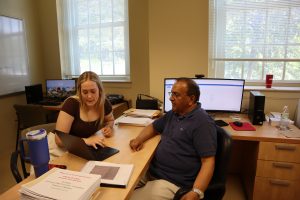
Project Title: “An Optional Mixture Binary RRT Model that Accounts for Trust and Measurement Errors”
In this project, we carry forward the work of Meche et al. (2024) where trust and measurement errors were accounted for in a complex looking mixture RRT model. We explore the potential benefits in using optional RRT as compared to non-optional RRT that was used in Meche et al. (2024)
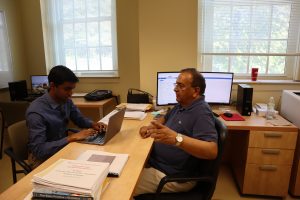
Project Title: “Improving Efficiency and Privacy through Joint Scrambling for
Sensitive Variables”
Quantitative RRT models have become the privacy standard for sensitive variable sampling. Beyond the mean estimators of Warner 1965, Greenberg et al. 1969, and variants, Shou et al. 2024 and Ahmad 2002 have posited kernel density techniques for distribution estimation from additive and multiplicative scrambling models respectively. Our work proposes an alternate sampling method, a distribution estimator which asymptotically outperforms the variance of KDE alternatives, and a mean estimator with comparable efficiency and better privacy protection. We validate our theoretical findings with simulations.
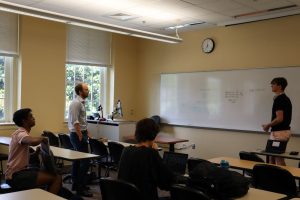
Project Title: “Through the Grapevine: Vineyard Distance as a Measure of Topological Dissimilarity”
We motivate, formalize, and bound vineyard distance as a theoretical measure of topological dissimilarity, exploring applications to dimensionality reduction, neural training dynamics, and geospatial data analysis.